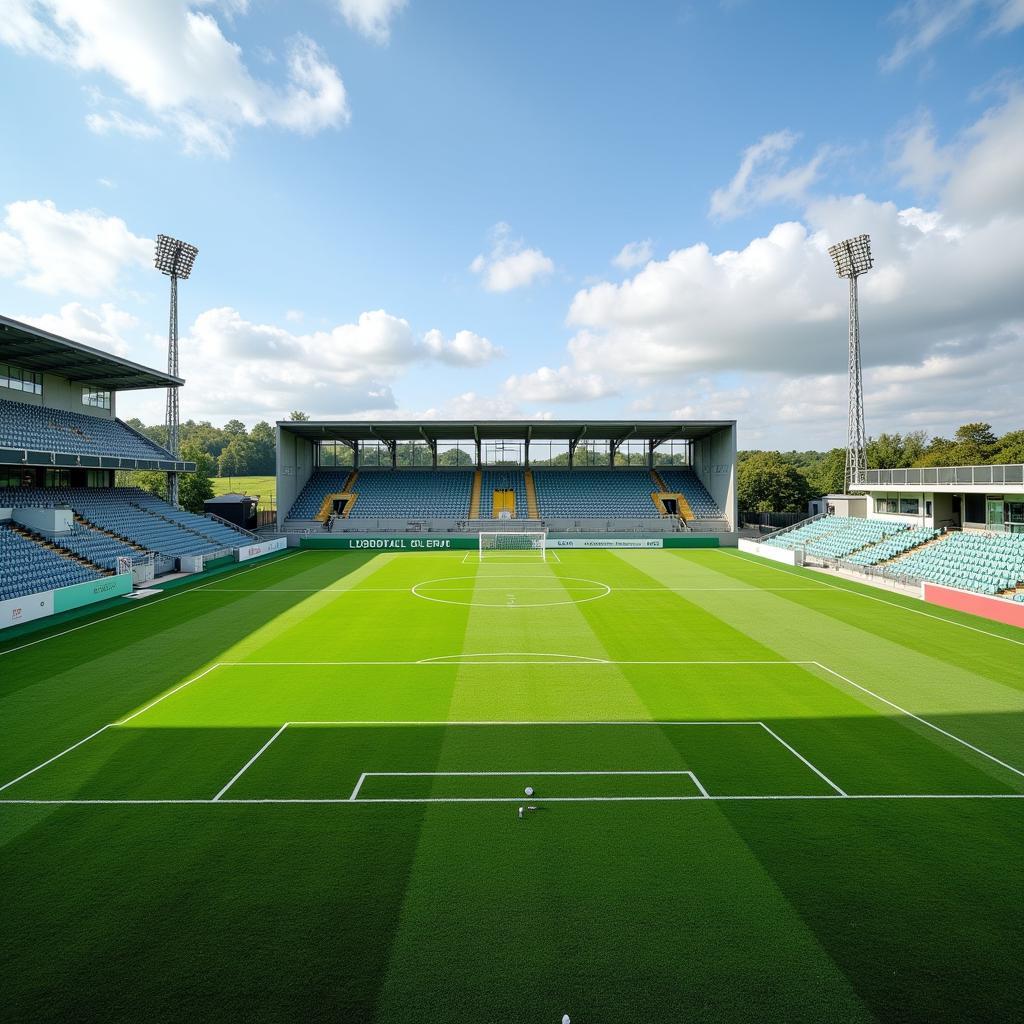19-Year-Old Football Players: Harvesting the Next Generation of Stars
October 18, 2024The world of professional football is always on the lookout for the next generation of stars, and the 19-year-old age group is a prime hunting ground for clubs seeking to unearth raw talent with the potential to blossom into global superstars. These young players, brimming with ambition, athleticism, and technical skills, represent the future of the sport, and their development is closely followed by fans, scouts, and pundits alike.
The Allure of Youth: Why 19-Year-Old Football Players Are in High Demand
At 19, footballers are at a pivotal stage in their careers, transitioning from promising prospects to seasoned professionals. This age marks a time of immense physical and tactical development, where natural talent meets honed skills. Clubs are increasingly recognizing the value of investing in young players, not just for their potential on the pitch but also for their future transfer value.
Here are some reasons why 19-year-old football players are highly sought after:
- Raw Talent and Potential: This age group possesses a unique blend of raw talent and untapped potential, making them exciting prospects for development.
- Adaptability and Learning Capacity: Young players are typically eager to learn and adapt, making them ideal candidates for molding into specific tactical systems.
- Physical Prime: At 19, athletes are often approaching their physical peak, displaying the speed, stamina, and strength crucial for top-level football.
- Transfer Value: Investing in young talent can yield significant financial returns for clubs, as their value often increases exponentially with performance and experience.
 Young Football Player Training Hard
Young Football Player Training Hard
Nurturing Potential: The Role of Clubs in Developing Young Players
Developing a 19-year-old footballer into a world-class talent requires a comprehensive and tailored approach. Clubs must provide the right environment and resources to nurture their growth both on and off the field.
Here are some key aspects of successful youth development programs:
- Quality Coaching: Experienced coaches with a proven track record of nurturing young talent are essential for technical, tactical, and mental development.
- Individualized Training Plans: Each player has unique strengths and weaknesses that require personalized training plans to maximize their potential.
- Competitive Match Experience: Regular game time, even if at a reserve or loan level, is crucial for young players to gain experience and develop their decision-making abilities under pressure.
- Mental and Physical Conditioning: The demands of professional football require peak physical and mental fitness. Clubs must provide access to top-notch sports science and psychology support.
- Off-Field Support: Support with education, housing, and personal development helps young players adapt to the challenges of professional football and life away from home.
 State-of-the-Art Football Academy Facilities
State-of-the-Art Football Academy Facilities
The Road to Stardom: Challenges and Opportunities for 19-Year-Old Football Players
The journey to becoming a successful professional footballer is rarely straightforward. 19-year-old players face immense competition, pressure, and scrutiny as they navigate the path to the top.
- Competition: Breaking into the first team of a top club is incredibly challenging, with young players often competing against established international stars.
- Pressure: The weight of expectations from fans, media, and clubs can be overwhelming for young players still finding their feet in the professional game.
- Mental Resilience: Setbacks and disappointments are inevitable in football. Developing mental resilience and a strong work ethic is crucial for overcoming adversity.
However, the rewards for those who persevere can be immense:
- Global Recognition: Top-level football offers a platform for global recognition and the opportunity to become a household name.
- Financial Rewards: The financial rewards in professional football can be significant, offering players financial security and the ability to provide for their families.
- Personal Fulfillment: Reaching the pinnacle of professional football is the culmination of years of hard work, dedication, and sacrifice, bringing immense personal satisfaction and pride.
 Young Football Player Celebrating Scoring a Goal
Young Football Player Celebrating Scoring a Goal
Conclusion: The Future of Football is Bright
The emergence of talented 19-year-old footballers across the globe bodes well for the future of the sport. These young players, with their ambition, skill, and dedication, have the potential to captivate audiences and etch their names in football history. As clubs continue to invest in youth development, we can expect to see even more young stars rise through the ranks in the years to come.
FAQ
Q: At what age do footballers peak physically?
A: While it varies, most footballers reach their physical peak between the ages of 24 and 28.
Q: What are some of the key skills scouts look for in young players?
A: Scouts look for a combination of technical skill, tactical awareness, physical attributes, and mental strength.
Q: What are some examples of successful 19-year-old footballers?
A: There are many, but some recent examples include Pedri (Barcelona), Jude Bellingham (Borussia Dortmund), and Jamal Musiala (Bayern Munich).